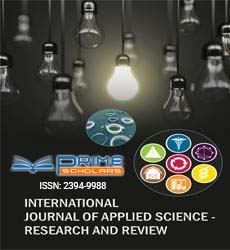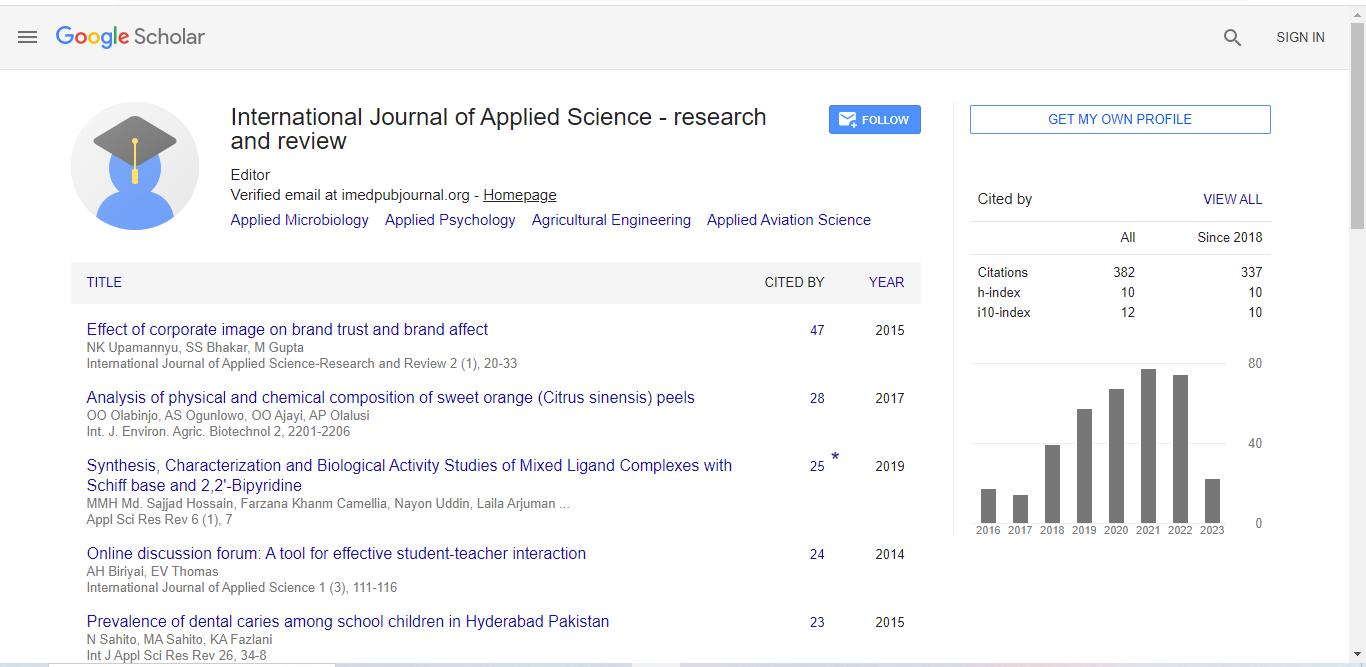Short Communication - (2023) Volume 10, Issue 5
Revolutionizing Web-Based Scrum Projects: The Evolution of a Reusable Hybrid Test Automation Framework
Yuji Nanami*
Department of Automation, University of York, UK
*Correspondence:
Yuji Nanami,
Department of Automation, University of York,
UK,
Email:
Received: 02-Oct-2023, Manuscript No. IPIAS-23-18566;
Editor assigned: 04-Oct-2023, Pre QC No. IPIAS-23-18566 (PQ);
Reviewed: 18-Oct-2023, QC No. IPIAS-23-18566;
Revised: 23-Oct-2023, Manuscript No. IPIAS-23-18566 (R);
Published:
30-Oct-2023, DOI: 10.36648/2394-9988-10.5.49
Introduction
In the ever-evolving landscape of software development, the
adoption of Agile methodologies like Scrum has become paramount
for efficient and iterative project management. To complement
this approach, the development of a Reusable Hybrid Test
Automation Framework emerges as a pivotal advancement, providing
a systematic and adaptable solution for testing web-based
Scrum projects. This framework amalgamates the strengths of
both keyword-driven and data-driven testing methodologies, offering
a robust foundation for enhancing the quality and efficiency
of software development. The Reusable Hybrid Test Automation
Framework is tailored to address the specific challenges posed
by web-based Scrum projects, where rapid iterations and continuous
integration demand a flexible and scalable testing solution.
By combining the modularity of a keyword-driven framework
with the data-driven approach’s versatility, this hybrid framework
provides a comprehensive testing strategy that accommodates
diverse project requirements and ensures efficient test case management.
Description
In the development phase, the framework’s modular architecture
is designed to be reusable across multiple projects, promoting
scalability and ease of maintenance. This modularity is particularly
beneficial in the dynamic context of Scrum projects, where
frequent changes and updates are inherent. Each module encapsulates
specific functionalities or components, facilitating easy integration
into different project contexts and minimizing the effort
required for adapting the framework to new requirements. The
keyword-driven aspect of the framework introduces a layer of abstraction,
enabling test cases to be written in a language-independent
manner. Instead of relying on complex scripting languages,
testers can use intuitive keywords that correspond to specific actions
or verifications. This abstraction not only enhances the readability
of test cases but also empowers non-technical stakeholders,
such as domain experts or product owners, to participate in
the testing process, fostering collaboration within cross-functional
Scrum teams. Complementing the keyword-driven approach, the
data-driven aspect of the framework enhances the efficiency of
test case execution by parameterizing test data. This flexibility allows
the same set of test cases to be executed with different input
values, providing comprehensive test coverage without the need
to duplicate test scripts. In a web-based Scrum project where functionalities
and user scenarios may vary, this data-driven capability
proves invaluable for thorough and adaptive testing. Central to
the framework’s design is its compatibility with Continuous Integration
(CI) and Continuous Deployment (CD) pipelines. Seamless
integration with popular CI/CD tools ensures that the automated
tests are executed consistently throughout the development lifecycle.
This integration promotes early detection of defects, accelerates
feedback loops, and contributes to the overall agility of the
development process, aligning seamlessly with the principles of
Scrum. Additionally, the Reusable Hybrid Test Automation Framework
incorporates robust reporting mechanisms to provide comprehensive
insights into test execution results. Detailed reports,
coupled with logging and error-handling mechanisms, facilitate
quick identification and resolution of issues. This transparency is
crucial in a Scrum environment, where rapid iterations demand
prompt feedback to maintain the momentum of development cycles.
The framework’s reusability, adaptability, and compatibility
with Scrum principles make it an ideal choice for web-based projects
that prioritize iterative development, collaboration, and rapid
releases. Its ability to strike a balance between keyword-driven
and data-driven testing methodologies ensures a versatile solution
that aligns with the dynamic nature of Scrum projects [1-4].
Conclusion
The Development of a Reusable Hybrid Test Automation Framework
for Web-Based Scrum Projects marks a significant milestone
in the pursuit of efficient and effective software testing. By embracing
the principles of Scrum and combining the strengths of keyword-driven and data-driven testing, this framework sets the
stage for enhanced collaboration, rapid feedback, and scalable
testing solutions in the dynamic world of web-based Scrum projects.
As software development methodologies continue to evolve,
the evolution of such frameworks becomes instrumental in delivering
high-quality products with speed and agility.
Acknowledgement
None.
Conflict Of Interest
The author declares there is no conflict of interest in publishing
this article.
References
- Oittinen T, Piirainen-Marsh A (2015) Openings in technology-mediated business meetings. J. Pragmat 85:47-66.
[Crossref] [Google Scholar]
- Stray V, Sjoberg DIK, Dyba T (2016) The daily stand-up meeting: A grounded theory study. J Syst Softw 114:101-124.
[Crossref] [Google Scholar]
- Mondada L (2018) Multiple temporalities of language and body in interaction: Challenges for transcribing multimodality. Res Lang Soc Interact 51(1):85-106.
[Crossref] [Google Scholar]
- Shao J, Muller R, Turner JR (2012) Measuring program success. Proj Manag J 43(1):37-49.
[Crossref] [Google Scholar]
Citation: Nanami Y (2023) Revolutionizing Web-based Scrum Projects: The Evolution of a Reusable Hybrid Test Automation
Framework. Int J Appl Sci Res Rev 10:49.
Copyright: ©2023 Nanami Y. This is an open-access article distributed under the terms of the Creative Commons Attribution
License, which permits unrestricted use, distribution, and reproduction in any medium, provided the original author and source
are credited.

